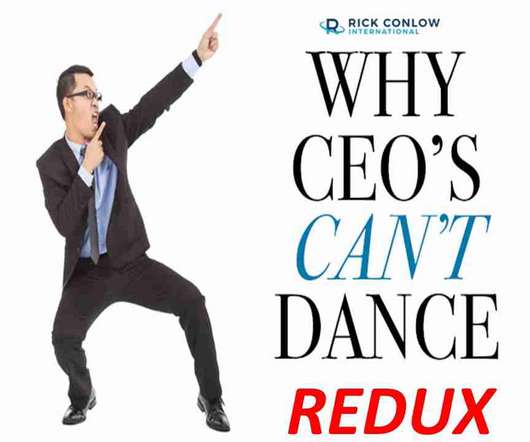Why CEOs Can’t Dance Redux
Rick Conlow
JANUARY 2, 2023
Because of this, CEOs are leaving a tremendous amount of employee potential talent and contributions on the table. Consider GM as a case study. According to management studies, a key reason leaders derail is that they do not communicate well. CEOs focus on data, facts, figures, and metrics. CEOs do not communicate well.












Let's personalize your content